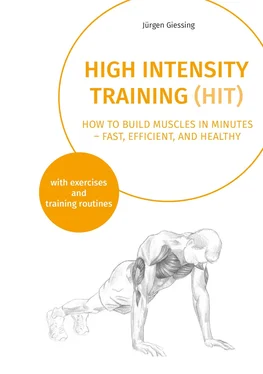In 1929 Thomas Mann was awarded the Nobel Prize in Literature, mainly for his splendid novel The Buddenbrooks which consisted of 768 pages. On the other hand, the 1954 Nobel Prize of Literature went to Ernest Hemmingway for his great short-stories and his grandiose 99-page novel The Old Man and the Sea .
The bottom line is: We might have every reason to value the effort that somebody puts into something, but whenever actions are taken to achieve a certain result, the key issue always is how adequate these actions are to achieve that particular goal.
More about Nobel Prize winners: In 1905 Albert Einstein finished several publications. All of them were so ingenious that the year 1905 was later called the wonder year of physics . One of these publications was Einstein’s doctoral thesis. When Albert Einstein first handed in his PhD thesis to Professor Alfred Kleiner, his doctoral advisor, Kleiner felt it was brilliant, yet he initially hesitated to accept the dissertation. The only thing that Kleiner criticized was that he felt Einstein’s dissertation was “zu kurz“ (German for “too short”) for a doctoral thesis. It consisted of 17 pages.
A scientist may spend his or her whole life trying to solve a problem or might solve it through a sudden flash of inspiration. Some of the greatest discoveries or inventions were brought about by coincidence. Alexander Flemming (another Nobel Prize laureate) discovered the substance he later called Penicillin when returning to his laboratory after spending some weeks on holiday with his family. When he came back he found one culture of staphylococci contaminated with fungus which destroyed the staphylococci near the fungus. His further research finally led to the development of the world’s first antibiotic. This discovery was responsible for millions of lives that could be saved by fighting serious infections with antibiotics.
But should we value Flemming’s work less because of the fact that the breakthrough in his research happened accidentally? I do not think so. Should Einstein have added some meaningless pages to his already brilliant piece of work? What if Michelangelo had not needed five years to finish his Sistine Ceiling paintings? What if he had finished them within six months? Should this make us appreciate his work less – or even more?
A side-effect of effort justification is that we do not only appreciate something more if we had to spend a lot of time on getting there. We also tend to attribute this success to the amount of work that we spent and underestimate the relevance of the quality of the process. After all, it is the result that counts, not the amount of hours we spend to get there.
We are rightfully impressed when someone says: “My car broke down. I called the mechanic who did not give up until he finally found the mistake after nine hours and then fixed it.” But is it not equally admirable if the story goes like this: “My car broke down. I called the mechanic who took one look at it, found the mistake and fixed it on the spot.” In the first version our appreciation for the mechanic’s effort is most likely caused by his not giving up, his persistence to keep looking for the mistake, but not his quality as a mechanic whereas in the second version the competence and efficiency of the mechanic clearly stand out.
Achieving the same result in much shorter time by improving the quality rather than the quantity of effort, improves the efficiency of the whole process tremendously.
Efficiency and the time factor
Everybody knows the saying “time is money” (usually attributed to Benjamin Franklin). However, this statement is incorrect. In fact, time is much more valuable than money. According to psychologists Philip Zimbardo and John Boyd time is our most valuable possession. And who could argue with that.
With regard to classical economics Zimbardo and Boyd point out that the rarer a resource is, the greater is its value. Unlike most other things that can be possessed like jewelry, gold or money, time cannot be replenished. Their statement that “(…) nothing will allow us to regain time misspent” [1] hits the nail on its head.
The outstanding value of time is also reflected economically. Overnight delivery is more valuable because of the time saved and therefore more expensive than regular delivery which may take a few days. International flights are another example. Non-stop flights are more expensive than connecting flights with a stopover that may even require a change of planes before reaching the actual destination. Although connecting flights (sometimes called “direct” flights to hide the fact that it is not a non-stop flight) cause higher costs for the airlines, they can charge more for non-stop flights because they help us save our most valuable possession: time.
Training is no exception. A training program is more efficient if it produces the same results or even better results in less time. And that is why High Intensity Training is the most efficient kind of training there is.
Those who say “I don’t care if I am wasting a lot of time in the gym as long as I am making good progress” should think twice. Even if there was no such thing as overtraining, which in fact impairs training progress, there is another factor that nobody can escape from: opportunity costs . This is another economical principle that also applies to time. And since time is our most valuable possession, it even applies more to time than to anything else.
In an economical context the relevance of opportunity costs becomes obvious. When someone decides between investing a certain amount of money on stock A instead of stock B, this decision may earn this person a certain amount of money after some time. But if he or she would have made even more money by choosing stock B instead of stock A, the profit made by choosing A is as obvious as the opportunity costs of not choosing B.
The same applies to time. Just as money spent on one thing cannot be spent on something else, the time we spend in the gym cannot be spent doing something else. Even if somebody does not mind wasting time in the gym (over)training, opportunity costs of that decision cannot be denied.
And there is one opportunity cost directly related to too much time spent training: Every minute spent (over)training means less recovery time from the workout. So training more than necessary is not just a waste of time. It is much worse than that. Training more than necessary (regardless of whether the person may enjoy time spent training) is counterproductive!
For this reason it is obvious that the “the more, the better” concept neither makes sense in an economical nor in a physiological context. Actually, the principles that are responsible for making muscles bigger and stronger have been identified a long time ago and could have been available for more than two millennia.
Recently, training science has rediscovered the legend of Milo of Croton which illustrates how the process of muscle training works in a nutshell. The lessons that can be learned from this famous ancient legend have been ignored for too long.
Milo of Croton

Figure 2: Milo of Croton
Milo of Croton was an Olympic wrestler who lived in the 6 thcentury BC. In fact, he may have been the most successful wrestler in Olympic history. He won the wrestling competition at the ancient Olympic games several times and was also a multiple winner of the wrestling competition at the Pythian Games at Delphi. Milo remained unbeaten for about a quarter of a century. Contemporary authors described Milo as incredibly strong. Milo, a friend of ancient mathematician and philosopher Pythagoras, allegedly once saved Pythagoras from being crushed when the roof of the house they were in broke down. Milo supported the central pillar until Pythagoras and the others could get out and then he saved himself by rushing out.
Читать дальше













